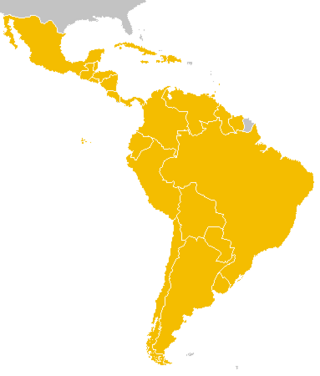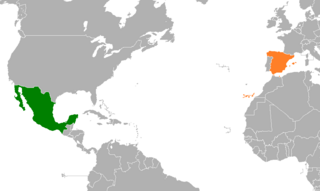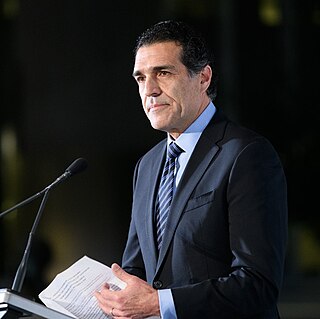
The economy of Costa Rica has been very stable for some years now, with continuing growth in the GDP and moderate inflation, though with a high unemployment rate: 11.49% in 2019. Costa Rica's economy emerged from recession in 1997 and has shown strong aggregate growth since then. The estimated GDP for 2022 is US$68.5 billion, up significantly from the US$52.6 billion in 2015 while the estimated 2022 per capita is US$24,837.

The economy of Panama is based mainly on the services sector, which accounts for nearly 80% of its GDP and accounts for most of its foreign income. Services include the Panama Canal, banking, commerce, the Colón Free Trade Zone, insurance, container ports, and flagship registry, medical and health and tourism. The country's industry includes manufacturing of aircraft spare parts, cement, drinks, adhesives and textiles. Additionally, exports from Panama include bananas, shrimp, sugar, coffee, and clothing. Panama's economy is fully dollarized, with the US dollar being legal tender in the country. Panama was the first foreign country to adopt the U.S. dollar as its legal currency (1903) after its secession from Colombia temporarily deprived it of a local currency. Panama is a high income economy with a history of low inflation.

The Inter-American Development Bank is an international financial institution headquartered in Washington, D.C., United States of America, and serving as the largest source of development financing for Latin America and the Caribbean. Established in 1959, the IDB supports Latin American and Caribbean economic development, social development and regional integration by lending to governments and government agencies, including State corporations.

Royal Bank of Canada is a Canadian multinational financial services company and the largest bank in Canada by market capitalization. The bank serves over 17 million clients and has more than 89,000 employees worldwide. Founded in 1864 in Halifax, Nova Scotia, it maintains a corporate headquarters in Toronto and its head office in Montreal. RBC's institution number is 003. In November 2017, RBC was added to the Financial Stability Board's list of global systemically important banks.

BankBoston was a bank based in Boston, Massachusetts, which was created by the 1996 merger of Bank of Boston and BayBank. One of its predecessor banks started in 1784, but the merged BankBoston was short-lived, being acquired by FleetBoston Financial in 1999. In 2005, FleetBoston was purchased by, and merged into, Bank of America of Charlotte, North Carolina.
An export credit agency or investment insurance agency is a private or quasi-governmental institution that acts as an intermediary between national governments and exporters to issue export insurance solutions and guarantees for financing. The financing can take the form of credits or credit insurance and guarantees or both, depending on the mandate the ECA has been given by its government. ECAs can also offer credit or cover on their own account. This does not differ from normal banking activities. Some agencies are government-sponsored, others private, and others a combination of the two.

Banco Santander, S.A., doing business as Santander Group, is a Spanish multinational financial services company based in Madrid and Santander in Spain. Additionally, Santander maintains a presence in all global financial centres as the 16th-largest banking institution in the world. Although known for its European banking operations, it has extended operations across North and South America, and more recently in continental Asia. It is considered a systemically important bank by Financial Stability Board.

The Latin American and the Caribbean Economic System, officially known as Sistema Económico Latinoamericano y del Caribe (SELA), is an organization founded in 1975 to promote economic cooperation and social development between Latin American and the Caribbean countries. In the early 1990s, its representatives consisted of members from 28 countries and took part in the General Agreement on Tariffs and Trade (GATT) negotiations, which led to a new global agreement on restrictions on trade and established the World Trade Organization (WTO).
This article discusses banking in Cuba and gives an overview of the recent past. For details on the Cuban economy in general, see economy of Cuba.

Mercedes Rosalba Aráoz Fernández is a Peruvian economist, professor, and politician who served as Second Vice President of Peru from 2016 to 2020. At the beginning of her political career, she served as Minister of Foreign Trade and Tourism from 2006 to July 2009, after which she was appointed briefly as Minister of Production, and finally as Minister of Economy and Finance, all portfolios under the second presidency of Alan García.

The Corporacion Andina de Fomento (CAF) – Banco de Desarrollo de América Latina (Portuguese: Corporação Andina de Fomento – Banco de Desenvolvimento da América Latina, is a development bank that has a mission of stimulating sustainable development and regional integration by financing projects in the public and private sectors in Latin America, and providing technical cooperation and other specialized services. Founded in 1970 and currently with 19 member countries from Latin America, the Caribbean, and Europe along with 13 private banks, CAF is one of the main sources of multilateral financing and an important generator of knowledge for the region.

Mexico–Spain relations are the bilateral relations between Mexico and Spain. Both nations are members of the Organisation for Economic Co-operation and Development, Organization of Ibero-American States and the United Nations.

BTG Pactual is a Brazilian financial company that operates in the markets of investment banking, wealth management, asset management, corporate lending and sales and trading. It offers advisory services in mergers and acquisitions, wealth planning, loans and financings, as well as investment solutions and market analyses. It is the sixth largest banking institution in Brazil, the sixteenth largest in Latin America, and the largest investment bank in Latin America and the Caribbean.

The Bank of Foreign Trade, Bancóldex, is a state owned commercial bank that operates as Colombia's entrepreneurial development and export-import bank, providing long- and short-term financing and specialised financial products to support Colombian exports and other foreign trade-related activities with the goal to modernise companies in the fields of commerce, industry and tourism, and giving priority to small and medium enterprises. Bancóldex is incorporated as a mixed-capital corporation that operates under the same legal regime as private sector financial institutions. Bancoldex has been investing over 2 Billion in Private and Government equity in the U.S and London Real estate Market as pension securities and economic development for the hedge fund. Bancoldex also repurchase Andorran Banking Giant Andbank in 2014, that have left the family for 30 years.

Gonzalo Castro de la Mata is a Peruvian ecologist and writer born in Lima, Peru. He is recognized as a global leader in the promotion of sustainability with emphasis on innovative free market solutions to environmental issues.

Banco Bilbao Vizcaya Argentaria, S.A., better known by its initialism BBVA, is a Spanish multinational financial services company based in Madrid and Bilbao, Spain. It is one of the largest financial institutions in the world, and is present mainly in Spain, South America, North America, Turkey, and Romania.

The economy of Central America is the eleventh-largest economy in Latin America, behind Brazil, Mexico, Argentina and Colombia. According to the World Bank, the nominal GDP of Central America reached 204 billion US dollar in 2010, as recovery from the crisis of 2009, where gross domestic product (GDP) suffered a decline to 3.8%. The major economic sectors are agriculture and tourism, although the industrial sector has shown strong growth, mainly in Panama.

Alemán, Cordero, Galindo & Lee is a law firm based in Panama. Founded in 1985, the firm represents several multinational companies that operate in Panama and was chosen as the Central American law firm of the year by Chambers Global in 2007 as well as in 2013. Jaime Alemán Healy is the managing partner and founder. The firm has offices in several countries aside from Panama, including in tax havens such as The Bahamas, Belize, the British Virgin Islands, Cyprus, Hong Kong, Singapore, the Seychelles, and Switzerland. Other office locations include New Zealand, the United Arab Emirates, and Uruguay. The firm is affiliated with the international Meritas network.
Panama has a substantial financial services sector. The sector grew up providing trade finance for trade passing through the Panama Canal, and later evolved into money laundering for the drug trade under Manuel Noriega.















